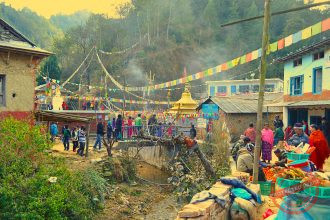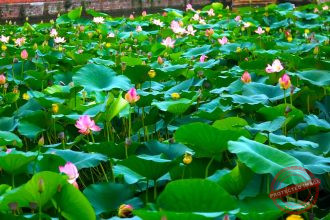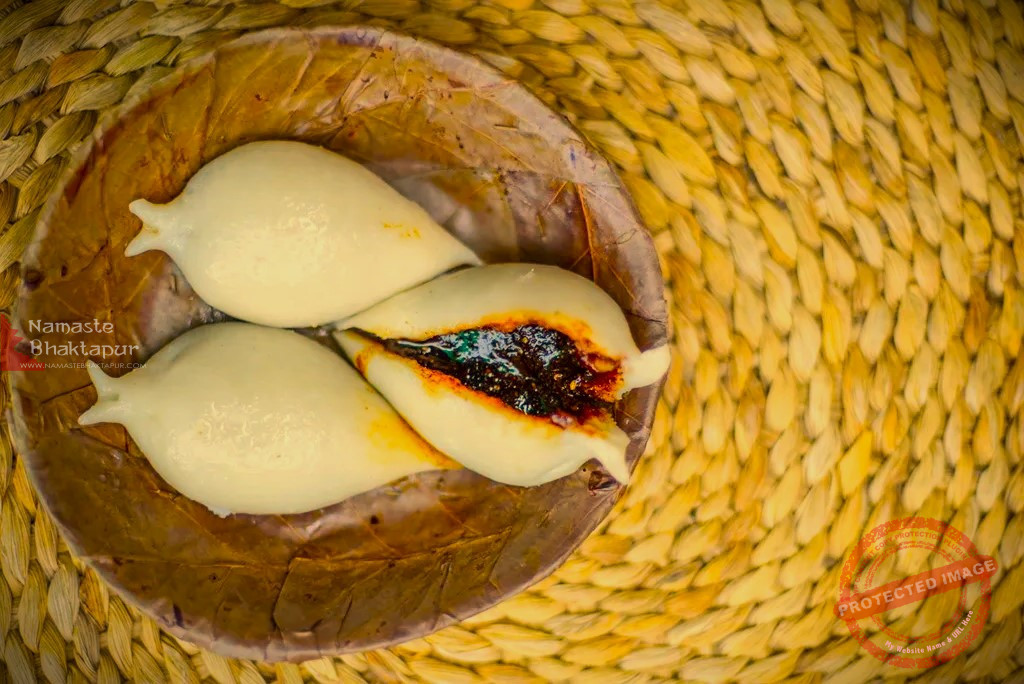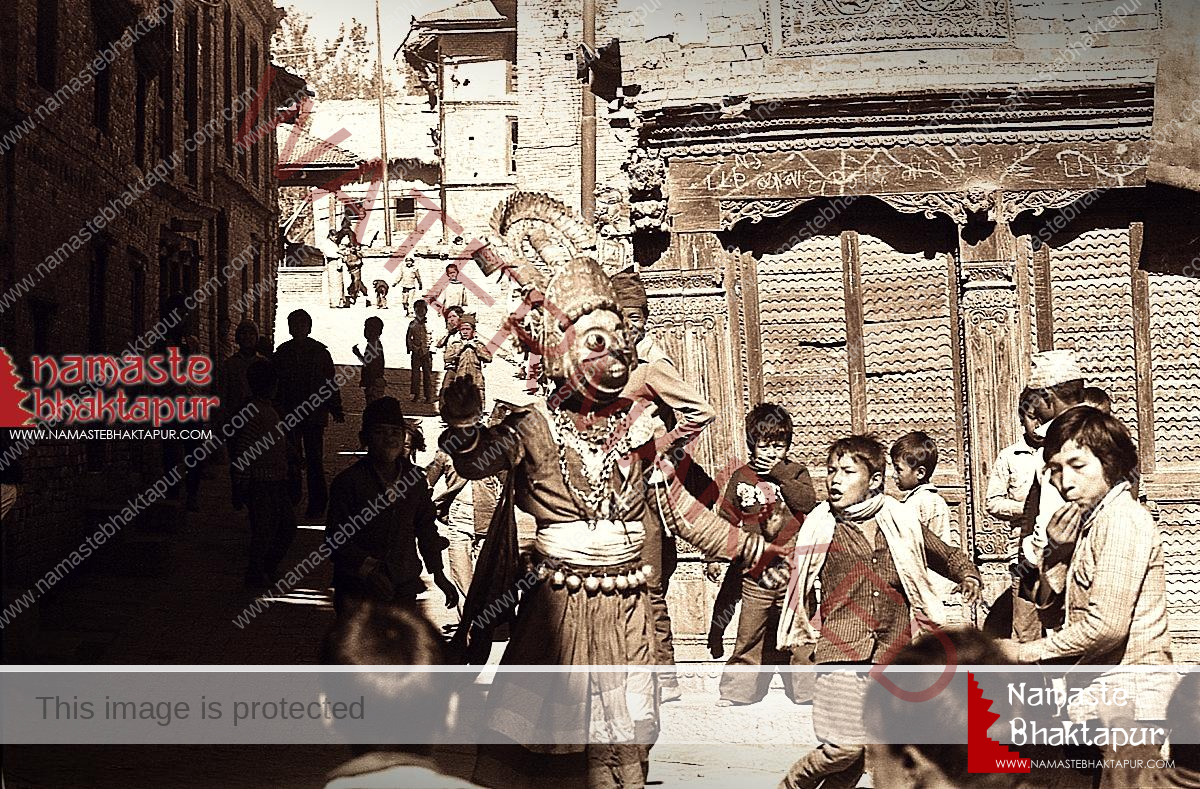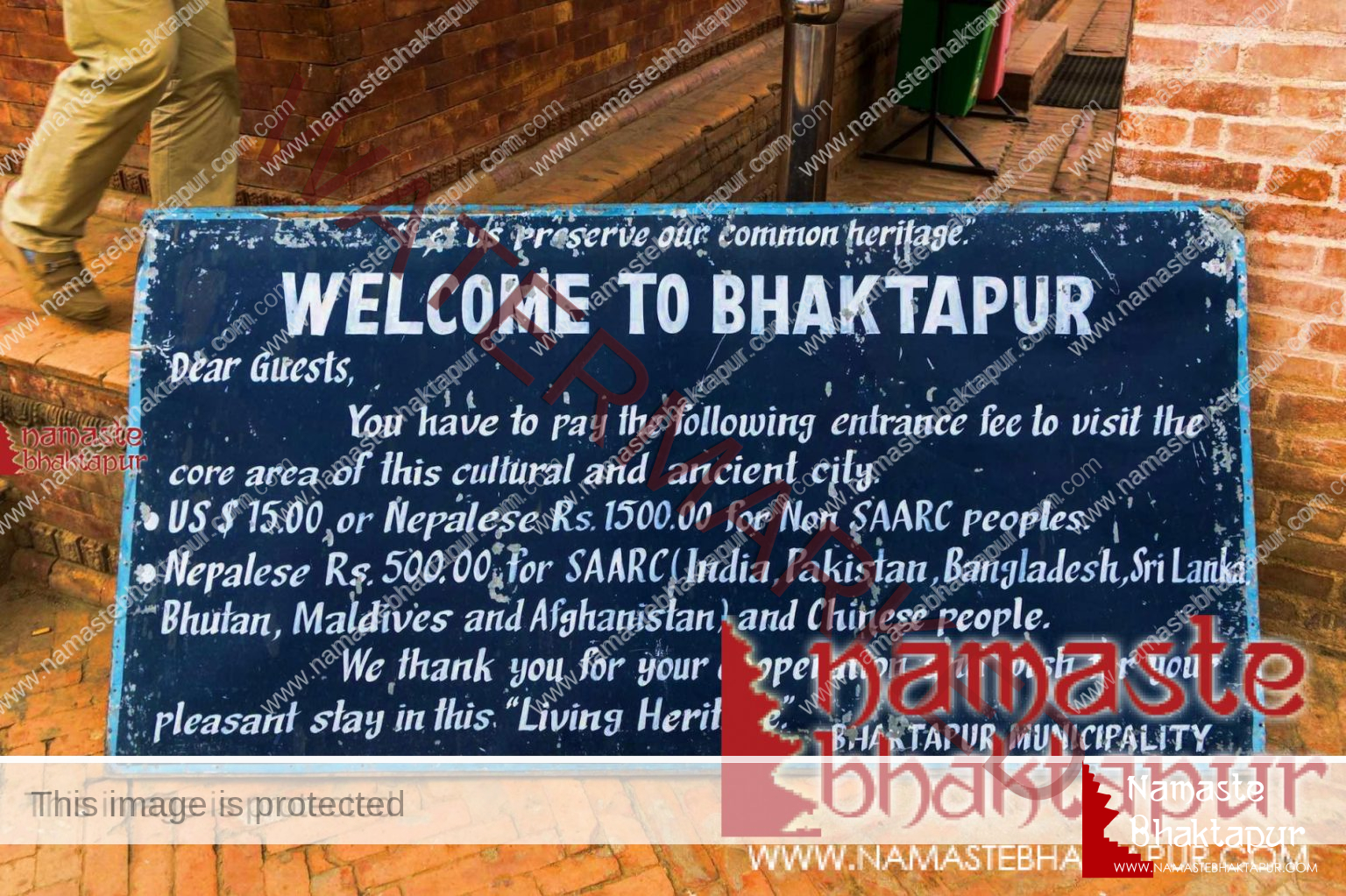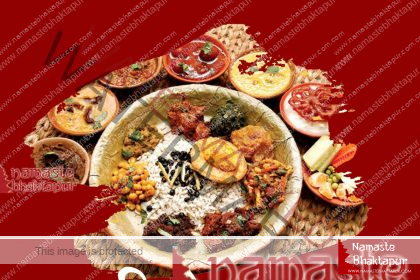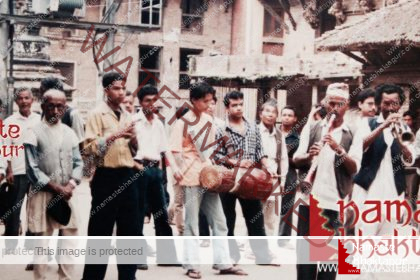A specialty of the Newar people of Nepal, particularly in the Kathmandu Valley, is Yamari, also known as Yomari. One of the well-known Newari sweet foods is Yomari (Yamari), which is made with rice flour and a sweet filling of either Khuwaor Chaku (molasses). This dish’s Sankha (Shankha, a sacred emblem of Hindu deity Vishnu, is used as a trumpet in Hindu rituals and historically as a war trumpet.) shape is considered a lucky charm and a sign of happiness.

Yomari Punhi festival and plays a significant role in Newa society.In the Newar community, Yomari Punhiis featured as special occasions. During the Full Moon(Punhi-Purnima)of Thinlaa, the second month of Nepal Sambat is celebrated annually during the full moon in December. there is a festival called Yomari Punhi, where the Newars come together to celebrate the event by creating various sized and shaped Yomari. Some people believe that the Yomari’s triangular shape represents one half of the Shadkona, which is a symbol of wisdom and Goddess Saraswati.
As Known Yomariis a fish-shaped creation made of rice flour (from the new crop), packed with sesame seeds and brown cane sugar, and then steam-cooked. When Yomari Punhi is celebrated after harvest, this treat is the main course on the menu.
Important Features
Ingredients:Made from rice harvested this year, which gives it a crisp, somewhat sweet flavor.
Shape:Usually shaped like a fig, although it can also be made to look like a goddess like Laxmi or Ganesh.
Fillings: Chaku (Molasses or Jaggery Taffy) and sesame seeds make up the most popular sweet filling. Shredded Coconut or Khuwa (evaporated milk solids)are further choices.
Cooking Method:Yomari is prepared by steaming it until it is done.

Cultural Significance
Yomari Punhi: A Newa festival commemorating the conclusion of the rice harvest season on the Full Moon Day, the sweet is the main dish.
Celebrations: In Newari Communities, it is served on a variety of other important occasions, including even-numbered Birthdays (as Garlands)and during Pregnancy,signifying good Fortune and the Birth of a Child.
Community and Tradition:Families get together to prepare Yomari, and as part of a custom known as “Yomari Phonegu,” kids walk door-to-door to collect the dumplings from their neighbors.


